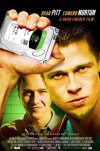If you manage to get away with Testdisk and PhotoRec then I guess that's okay, but you're basically limiting yourself. Bit like, if you have a hammer as your only tool, everything becomes a nail. Sure Testdisk allows you to copy files, but won't handle more severe file system damage. Basically it's no more than a clumsy undeleter. So then PhotoRec. But PhotoRec only does raw recovery, so no filenames, no folder structure and lots of false positives. In some cases like an SD Card with only photos not a big deal perhaps, but different story on a hard drive containing 500000 files. In fact I do not even like it for photo recovery because of the many false positives and recovery of useless thumbnails and such.
A 'better' tool potentially recovers client data complete with file names with original folder structure.
My take on this would be:
You need something to clone drives with (ideally) and file recovery software. HDDSuperClone and DMDE can be purchased as a bundle, sort of.
If you don't touch unstable drives, cloning could be done using DMDE itself too. For file recovery software it actually has decent cloning on board, even allows for timeouts, direct SCSI/ATA and such, which is more than most tools. DMDE also has some features that allows it to be used in tandem with ddrescue, for example it can export it's cloning log to a ddrescue map file.
It supports most common file systems. It's has a quick lost partition scan feature (does this automatically), reconstructs file systems and it can do what Testdisk does: Restore/undelete partitions in-place as well as repair boot sectors. I urge you to only do this if you know what you're doing though and first clone the patient drive.
Can be a tad hard to use though. For example if you decide to clone a drive, disk access parameters can not be accessed from clone/image window. For that you need to goto device I/O parameters window. It's not the most intuitive tool. But for $95 you get a very complete tool, license permits commercial use and is lifetime. It's unbeatable if you consider what it can do vs. the price IMO.
The big guns like R-Studio and UFS Explorer and perhaps ReclaiMe PRO are considerably more expensive (for commercial use), and valid for a year. I must add that ReclaiMe Ultimate, which is a consumer product but still very useful is life time license and AFAIK permits commercial use. Lately there are some signals I picked up which may indicate R-Studio (R-TT) will become more aggressive enforcing license limitations.
UFS is best prepared if you decide to expand later on as it can work in tandem with various of the DeepSpar tools.

